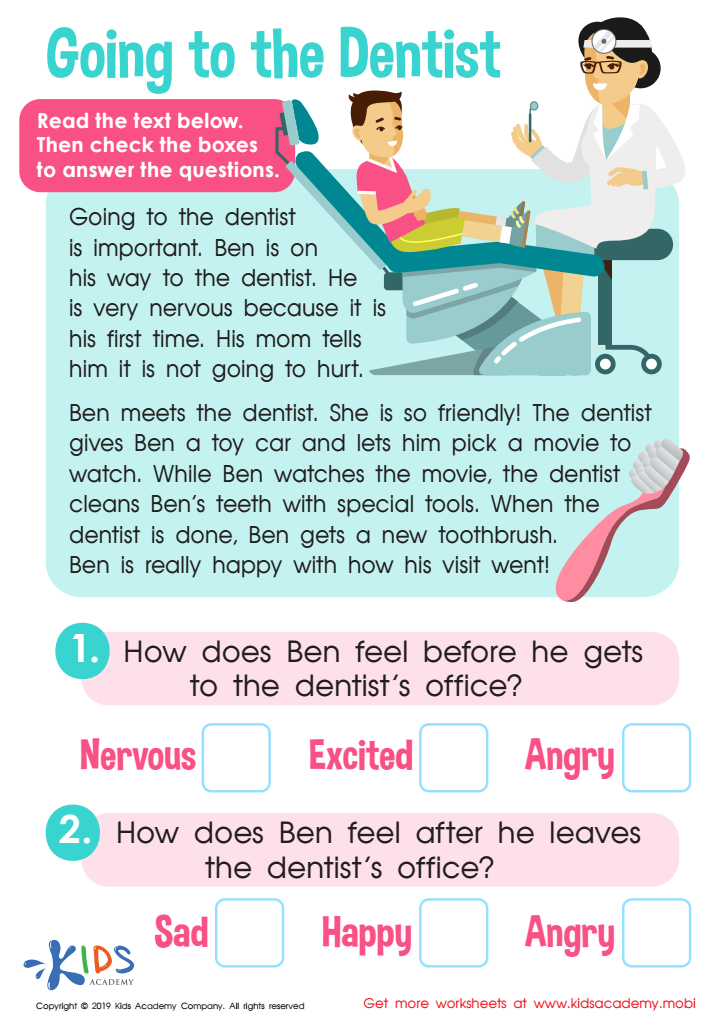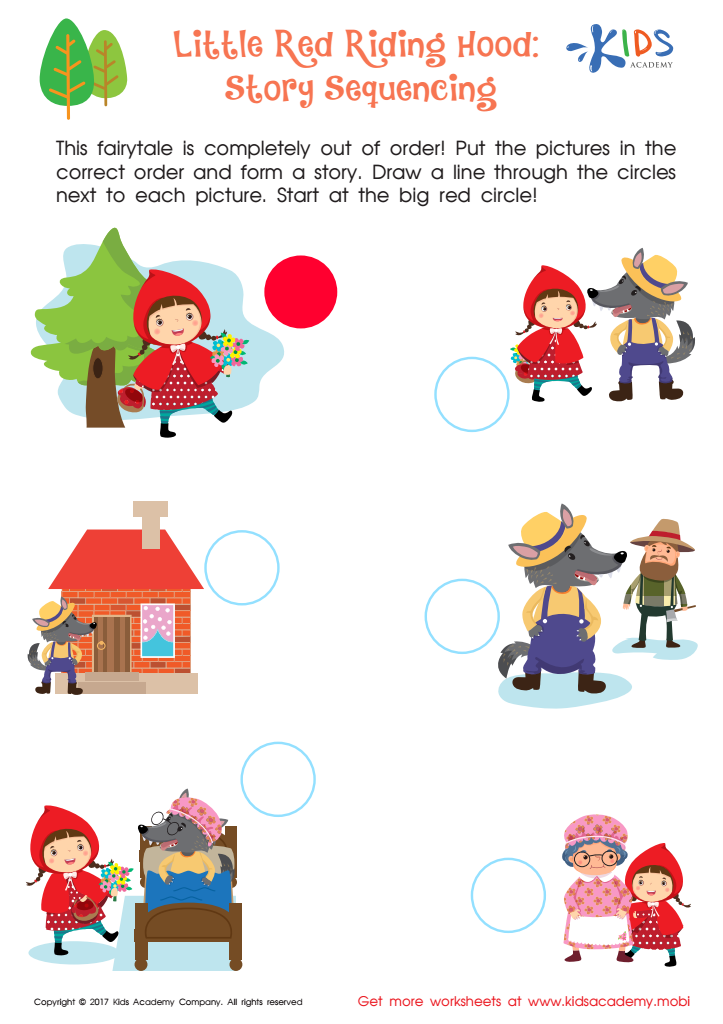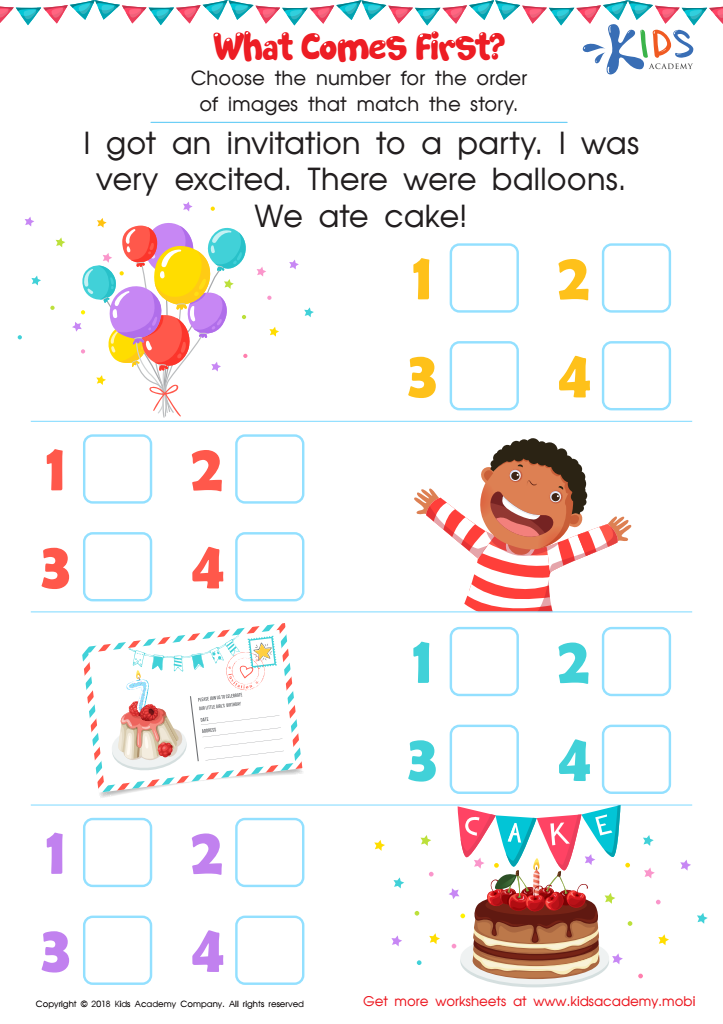Sequencing Skills Normal Reading Worksheets for Ages 7-8
3 filtered results
-
From - To
Enhance your child's reading comprehension with our Sequencing Skills Normal Reading Worksheets designed for ages 7-8. These engaging worksheets focus on teaching young readers the importance of order in storytelling and understanding events. With a variety of activities that promote critical thinking, children will practice arranging story events, identifying sequences, and improving their narrative skills. Each worksheet is thoughtfully crafted to make learning fun while building essential reading abilities. Foster your child’s confidence and competence in reading by exploring our collection of sequenced activities perfect for classroom use or at-home practice. Empower your young learners with vital sequencing skills today!


Going to the Dentist Worksheet


Story Sequencing Printable


What Comes First Worksheet
Sequencing skills are essential for children aged 7-8 as they play a crucial role in reading comprehension and overall literacy. At this age, children are transitioning from learning to read to reading to learn. Developing the ability to identify and understand the sequence of events in a story helps them grasp the narrative structure, enhancing their comprehension of texts.
Parents and teachers should care about these skills because they lay the foundation for critical thinking and problem-solving abilities. When children can discern the order of events, they can make predictions, draw conclusions, and retell stories accurately, strengthening their memory and understanding.
Moreover, strong sequencing skills support a child's ability to organize their own thoughts and express ideas effectively, both in writing and verbal communication. In today's increasingly complex world, being able to sequence information logically helps children navigate various subjects, from mathematics to science.
Encouraging sequencing can also foster creativity, as children learn to weave events together in imaginative ways. Thus, prioritizing the development of sequencing skills in young readers not only contributes to their academic success but also equips them with life skills they will rely on throughout their education and beyond.
 Assign to My Students
Assign to My Students




















